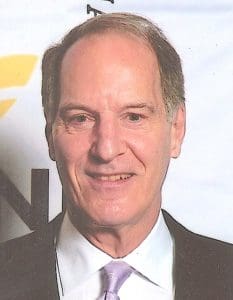
It’s always a struggle to put things into historic periods. One way is to talk about the (something or other) “decade.” But history usually doesn’t cooperate. So with the clock running out on Black History Month 2018, here is a shot at putting the modern period into some kind of framework.
It is worth thinking about the current period as the time between the passage of the Civil and Voting Rights Acts in the mid-1960s and the present – basically the past half century. These laws were among the greatest achievements in American history, wiping out centuries of legal racism. But, as is the case of all social progress, they triggered a reaction.
Within a few years, the formerly Democratic South had become solidly Republican, as Republicans made it clear that they would be the white people’s party in the future. As a reaction to civil rights laws, the Black Power Movement and urban rioting in the mid-1960s, white backlash would morph into the most powerful reactionary movement in American history, culminating in the Trump administration and the possibility of achieving reactionary goals going back to the New Deal.
A noted historian once said, “We should always beware that what now lies in the past once lay in the future.” In the mid-1960s, that future looked bright for many people. In the Bronx neighborhood where I had my first real jobs, we were “building the integrated community of the future.” It is now all black and Hispanic and poorer than it was 50 years ago.
In those same years, the civil rights movement and its beliefs in the possibility of a shared and just future was largely supplanted by the Black Power Movement, whose consequences have largely been underestimated. This is an area where Virgin Islands and mainland history clearly intersect.
Instead of a belief that black and white people could work together, the black power movement denigrated whites as a whole. They were “honkies” who were irredeemable. Instead of non-violence and Gandhi, violence was glorified by people like Rap Brown and Stokely Carmichael. White teachers and education were trashed, a sham, don’t fall for “white tricknology.” And, anyone who didn’t go along with the program was a “racist” if they were white, and an “oreo,” if they were black.
If the idea was to scare the hell out of white people, the black power movement was a big success. At some point, significant numbers of white people, now accustomed to being labeled a racist for disagreeing with the most outrageous black leaders, either withdrew into silence or said, “OK, I’m a racist, now what?”
If it was to mobilize black communities for progress, it is hard to find the record of achievements, and easy some 50 years later to see the legacy of rioting and violence in cities across the country.
And, tragically, at the same time as the racial dialogue of the deaf was getting underway, something else was happening. The postwar economic boom that had swept vast numbers of Americans, black and white, into the solid working class or the middle class came to an end. It was far easier to make room for others when you knew that life could get better for everyone, than when it began to seem like a zero-sum, where, whatever “they” got, came out of your pocket.
And then, even worse was to come. In addition to the pie growing far more slowly, its slices were all being distributed upward to an increasingly small segment of the population, the top .001 percent, virtually all white and disconnected from American society, regardless of color. The middle class shrank, immigrants who were willing to work for low wages and no benefits displaced Americans in a range of jobs, and the rungs on the ladder of upward mobility disappeared, producing the most unequal society in the developed world.
Despite these developments, the racial narratives of the 1960s and 1970s remained frozen in place. White people fell for the narrative of black people now on food stamps instead of welfare, sucking up their hard earned tax dollars. Despite the fact that fewer than 25 percent of American families living in poverty were black, 60 percent of news stories on poverty about poverty showed black families.
And, despite the fact, that 75 percent of those in poverty were white, and that white economic wellbeing had eroded year-by-year, television talking heads now used the meme of “white privilege.” It all reinforced the belief that we now live in a zero sum world, and many white people responded in kind by voting for candidates who would stick it to the others.
There was a wave of empathy for Appalachian and rural white people everywhere, living in poverty and communities beset by social ills. This empathy was all well placed, but it often left out the sad reality that there was no reciprocal empathy in these communities for those who looked different, especially black people, immigrants and LGBT people, who were in similar circumstances.
These groups had all been “otherized,” and, with the election of President Obama in 2008, the forces of reaction had a focus for mobilizing all of that white resentment and anger, and pointing it away from the economic elites who were the architects of their decline. That brought us to where things stand today, possibly the bleakest Black History Month in memory.
If there is to be a brighter future, it will almost certainly be driven by a working class, multi-racial coalition that will focus on the wellbeing of all working and poor people, regardless of their color, gender, sexual orientation, or where they came from.
That feels like a big stretch right now.





